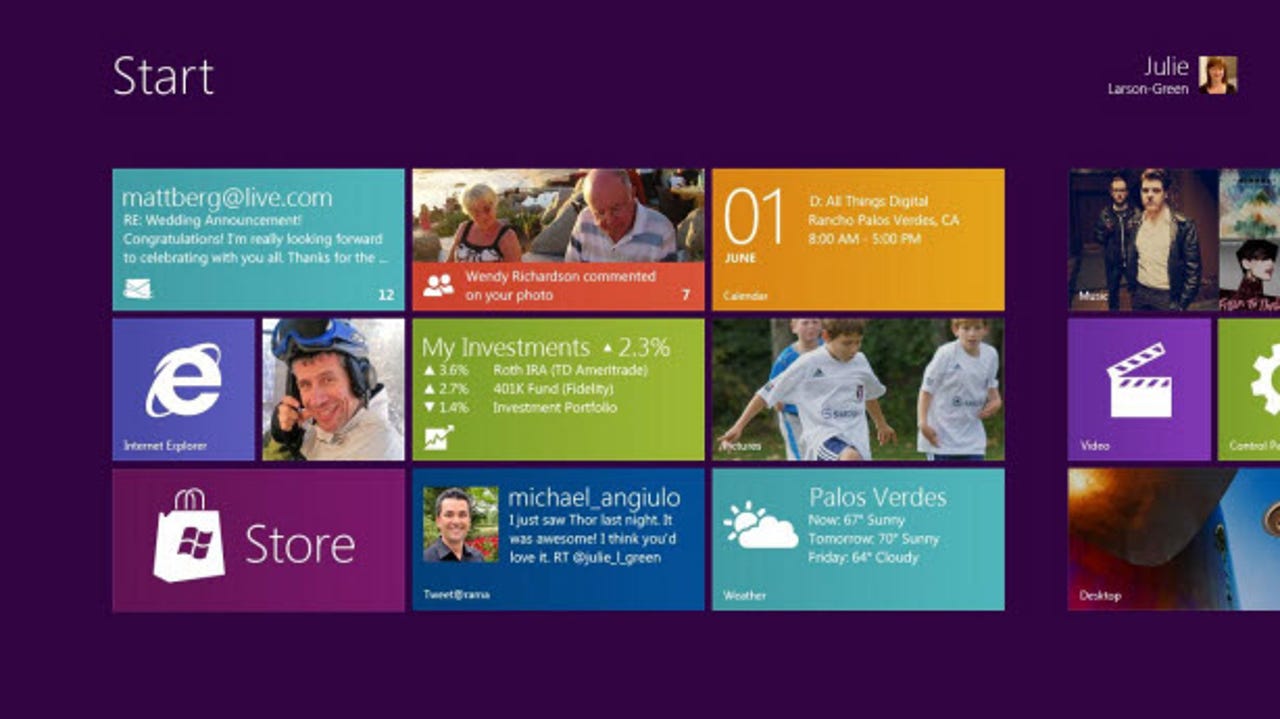Are Windows 8 tablets already irrelevant?

Microsoft is putting a devoting a significant amount of time, effort and money into making Windows 8 'touch-enabled' ready for loading onto tablets. But are Windows 8 tablets already irrelevant.

Here's the problem. Microsoft is putting an awful lot of time, effort and money into making Windows 8 a touch-enabled operating system that will work on both desktop and tablet, x86 and ARM hardware. But in order to put Windows on a tablet, Microsoft is having to turn its back on the x86 architecture and instead look to more power-efficient ARM hardware. That makes sense because when it comes to mobile devices consumers (home and enterprise) are now more concerned with battery life than they are with megabytes and gigahertz.
But that leads Microsoft onto a problem. ARM can't run x86 code natively. You'd need an emulator to pull that trick off, and Microsoft has made it clear that it will not be putting an x86 emulator into Windows 8 for ARM. So if Windows 8 tablets are going to be powered by ARM hardware, and if ARM hardware won't be able to run x86 code, then what's the point of Windows 8 on tablets?
Now that statement might seem flippant, but ask yourself the following question. Why do people what Windows on a tablet unless it's to be able to run existing Windows applications and connect their existing hardware to their tablet? But, Windows-powered tablets have been around for over a decade now, and yet they've not taken off because Windows and Windows applications are poorly suited to being driven by fingers.
And there's the catch-22. Microsoft is betting the farm on there being a demand for Windows on tablets despite there having been no serious demand in the past. And to make matters worse, Windows on ARM-powered hardware won't actually be the sort of Windows that people are used.
There's even confusion over whether the ARM version of Windows 8 will even ship with the classic Windows desktop or not. The presence of a classic desktop at least allows for the option that applications (in particular 64-bit software) could be ported to ARM. But then as I've already said, traditional Windows applications aren't really well-suited for touch systems, so maybe it doesn't matter.
Ars Technica's Peter Bright suggests that there's a case for Microsoft to both support and not support the legacy Windows desktop. Personally, I don't think it matters. Bottom line, Windows 8 on a tablet will be only offer a Metro version of Windows, which, for anyone using Windows right now, this it NOT the Windows experience that people will expect from their tablet.
It's not just software. It's hardware too. ARM-powered Windows tablets might have USB ports just like a desktop PC, but good luck hooking up a printer or camera or other such hardware. Unless you have specific ARM drivers, you'll be out of luck. Again, it might be be called Windows, but it won't act like the Windows that users are currently using.
In other words, Windows 8 are irrelevant before they're even released.
Given these drawbacks, what does a Windows tablet offer that, say, the iPad or an Android tablet doesn't? If anything, the iPad and Android platforms have a far more mature app ecosystem to support them.
It's quite possible that Microsoft is putting too much effort into the touch UI (user interface). Apart from the iPad, there's no indication whatsoever that there's any significant demand for tablets. Microsoft is taking a huge risk by tinkering with its desktop OS in such a fundamental way when it could put a modified Windows Phone OS onto tablets and offer a similar experience while leaving Windows a purely desktop OS.
At the very least Microsoft needs to start managing user expectation of what Windows 8 tablets will and will not be capable of. At present, the information vacuum is being filled by speculation and wishful thinking, neither of which will be helpful once tablets start hitting shelves.
Related:
- Windows 8 Metro UI and how previous attempts to revamp the desktop failed
- Windows 8 will be 'largely irrelevant' to traditional PC users: IDC
- Is Microsoft putting too much emphasis on touch in Windows 8?
- Windows 8 design flaws Microsoft MUST address
- Ars Technica: Why Microsoft should, and shouldn't, support legacy Windows desktop on ARM